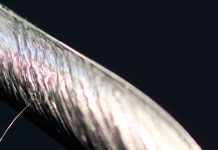In the world of welding, efficiency and precision are key. That’s why, when it comes to welding electrodes, an essential tool comes into play – the welding electrode oven. But what exactly is the purpose of this seemingly simple contraption? In this article, we’ll uncover the importance of a welding electrode oven and how it plays a vital role in ensuring optimal performance and quality in the welding process. So, let’s embark on this journey together and discover the hidden power of the welding electrode oven.
Review contents
Overview of welding electrode oven
A welding electrode oven is a crucial piece of equipment used in the welding industry. It plays a vital role in ensuring the quality and reliability of welds by providing a controlled environment for welding electrodes. The oven protects the electrodes from moisture absorption and prevents hydrogen embrittlement, both of which can lead to weak welds. By utilizing a welding electrode oven, welders can ensure consistent weld quality, extend the lifespan of their electrodes, avoid costly rework, and maintain compliance with industry standards. In this article, we will delve deeper into the various benefits and considerations associated with welding electrode ovens.
Providing a controlled environment for welding electrodes
One of the primary purposes of a welding electrode oven is to provide a controlled environment for welding electrodes. These ovens are designed to maintain a specific temperature range, typically between 250°F to 550°F (121°C to 288°C), at which the electrodes can be stored. By storing electrodes in a controlled environment, welders can ensure that the electrodes are not exposed to extreme temperature fluctuations, which can negatively affect their performance and integrity.
Preventing moisture absorption
Moisture absorption is a common issue that welding electrodes face when exposed to ambient air. Moisture can greatly degrade the welding performance of electrodes, leading to the formation of porosity, cracks, and lack of fusion in the welds. Welding electrode ovens address this problem by effectively removing any moisture present in the electrodes. The controlled heating in the oven helps to evaporate the absorbed moisture, ensuring that the electrodes remain dry and ready for use.
Preventing hydrogen embrittlement
Hydrogen embrittlement is another critical issue that can occur if welding electrodes are not stored properly. When electrodes absorb moisture, hydrogen can be released during the welding process. This hydrogen can get trapped in the weld metal, causing it to become brittle and prone to cracking. By using a welding electrode oven, welders can eliminate the moisture that leads to hydrogen embrittlement, thereby ensuring weld integrity and preventing costly repairs.
Ensuring consistent weld quality
Consistency in weld quality is vital to meeting structural integrity and safety requirements. A welding electrode oven helps achieve this consistency by providing a controlled environment that ensures the electrodes are in optimal condition for welding. By storing electrodes at a consistent and controlled temperature, welders can minimize variables that could affect weld quality, such as moisture content and electrode performance. This leads to more predictable and reliable welds, streamlining the welding process and reducing the probability of weld defects.
Extending the lifespan of welding electrodes
By storing welding electrodes in a controlled environment, a welding electrode oven can significantly extend their lifespan. Electrodes that are exposed to high levels of moisture or extreme temperatures are more prone to deterioration and degradation. This can lead to electrode inefficiency, increased spatter, and decreased arc stability. By using a welding electrode oven, welders can protect their electrodes from these adverse conditions, thereby maximizing their usability and reducing the costs associated with frequent electrode replacement.
Avoiding costly rework
Weld defects are not only time-consuming to rectify but can also be extremely costly. When electrodes are not stored properly and moisture is allowed to seep in, the resulting welds may be of poor quality and fail inspection standards. This often leads to rework that involves re-welding the joint, removing the defective weld material, and reapplying the welding sequence. By utilizing a welding electrode oven, welders can prevent the need for such extensive rework by maintaining the integrity and quality of their electrodes, ultimately reducing project costs and enhancing overall productivity.
Maintaining compliance with industry standards
Compliance with industry standards is of utmost importance in the field of welding. Many welding specifications, such as those set by the American Welding Society (AWS), mandate the proper storage of welding electrodes to ensure their quality and performance. By incorporating a welding electrode oven into their welding processes, welders can demonstrate their commitment to maintaining compliance with these standards. This not only fosters confidence among clients and regulatory bodies but also contributes to the overall professionalism and reputation of the welding industry.
Different types of welding electrode ovens
There are various types of welding electrode ovens available in the market, each designed to cater to different needs and preferences. The most common types include benchtop ovens, portable ovens, and floor-standing ovens. Benchtop ovens are compact and suitable for small-scale welding operations, while portable ovens offer mobility and convenience for welders who frequently move between job sites. Floor-standing ovens, on the other hand, are larger and typically used in industrial settings where a higher volume of electrodes needs to be stored. Each type of oven has its own advantages and limitations, so it is important for welders to consider their specific requirements before investing in one.
Considerations when using a welding electrode oven
While welding electrode ovens offer numerous benefits, there are several considerations that welders should keep in mind when using them. Firstly, it is essential to monitor and maintain the temperature inside the oven to ensure that it remains within the recommended range. Additionally, proper ventilation is crucial to prevent the accumulation of harmful gases during the heating process. Welders should also be cautious when handling hot electrodes, using appropriate protective gear to prevent burns or injuries. Lastly, regular inspections and maintenance of the oven should be conducted to guarantee its functionality and safety.
In conclusion, a welding electrode oven is a valuable tool for welders, ensuring a controlled environment for welding electrodes and preventing issues such as moisture absorption and hydrogen embrittlement. By using a welding electrode oven, welders can maintain consistent weld quality, extend the lifespan of their electrodes, avoid costly rework, and comply with industry standards. Different types of welding electrode ovens cater to various needs, and it is vital for welders to consider their requirements before selecting one. With proper usage and consideration of safety measures, a welding electrode oven can significantly enhance welding processes, improve weld quality, and contribute to the overall success of welding projects.





























